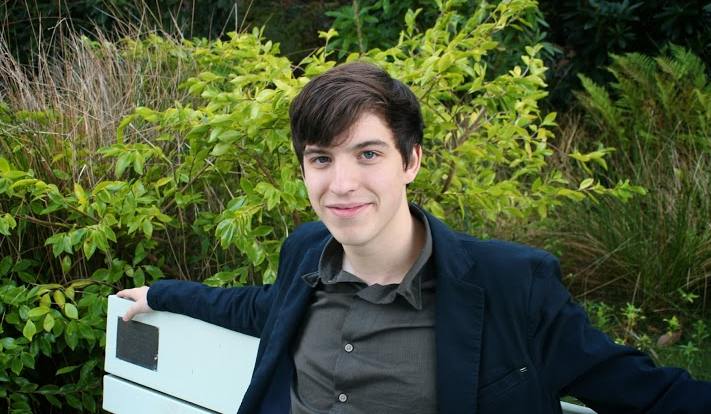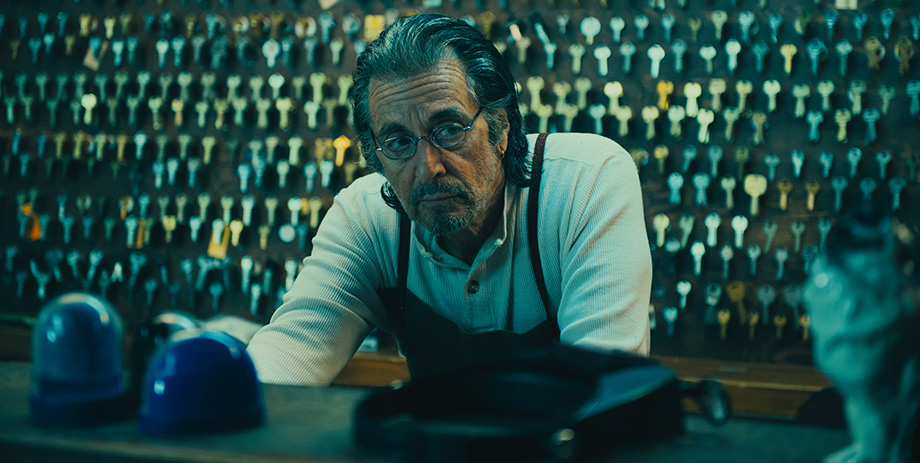A master of adaptability, Al Pacino seems to be bound by no character. In his latest film–David Gordon Green’s naturalistic fairy tale “Manglehorn”–Pacino plays a forlorn locksmith attempting to get over the love of his life. To break free of eternal stagnation and despondency, the eponymously titled character tries courting the bank teller he’s been interacting with for years. The film is a unique experience for all parties involved. Green has never created something this whimsical, and Pacino has never inhabited a person of this stature. A.J. Manglehorn is not menacing, confident, or particularly wise. Even if you don’t fancy the film, it’s easy to marvel at Pacino as he reaffirms his title as a human chameleon.
At this year’s Toronto International Film Festival, Pacino and Green sat down and spoke with RogerEbert.com about the appeal of “Manglehorn”, different forms of therapy, and the magic of cinema.
Since you’ve been in a few movies here and there, I’m going to assume that you receive plenty of scripts. What initially intrigued you about David’s story?
AL PACINO: Every once in a while a script comes along, a person comes along, and as far as I can see David is the kind of director you want to work with because he’s going to contribute to you as an actor and what kind of movie you want to make. It came out of the blue. I met David at a session over some project he was going to do. We had a bit of a time together talking about it, and it wound up not happening. And then I went away and David came back to me almost a year later and wrote a script for me based on that encounter we had. So that was really intriguing to start with, and then I read it and thought it was quite good.
Had you seen any of his films prior to reading that script?
AP: Yeah, and I know that he had this movie and thought it was really interesting. But I didn’t know that I could play the part or if I wanted to play it, or if it was linking up with wherever I was at the time. He just persisted and talked to me at length and allowed me to express how I felt and he listened.
I only laugh a little bit because before you sat down David and I were talking about your performance in “Glengarry Glen Ross,” which I just revisited the other day. And it’s clear to both of us that you can pretty much inhabit any character, slip into any role.
AP: Oh, thanks. Thank you. That’s great to hear.
But you had some doubts going into “Manglehorn.”
AP: Oh, I have doubts all the time. I wouldn’t be here doing this still if I didn’t have doubts. If I conquer my doubts then I’ll go back to basket weaving.
DAVID GORDON GREEN: (Laughs) I like it.
That’s a bizarre image, you sitting there alone, basket weaving.
AP: A friend of mine once said, “I’d go learn basket weaving so that when they cart you away you’ll be ahead of the game.”
No golf?
AP: No golf. I hadn’t done that. Believe me I wish I could get into it, because what a wonderful thing to do. Especially when you get a little older. You get the appropriate exercise and you’re in a nice environment. And you’re in competition with yourself too. I don’t follow it much, but it’s an intriguing sport.
I admire the patience.
AP: Yeah, exactly.
Alright, before we get too far off topic … David, you described your film as a “naturalistic magical fairy tale.” Would you consider this a departure for you, or this the next logical step for you?
DGG: There’s no logical step in my career. But you know what, I don’t even know if Al knows this, I started out wanting to make a children’s film. This was going to be around Al’s locksmith character that had this fable-like mythology–something that felt like of the timeless essence of great characters. There’s no vulgarity, but it (the film) took on maturity as we started writing it that took it beyond the original intention. The original idea was going to involve more of the granddaughter character. I just kind of fell in love with the love story as we were evolving the story and characters. It seemed like an organic path. The creation of this project is like the creation of my career; it doesn’t necessarily make logical sense; it’s not A + B = C. It’s let’s throw some ideas out, grab onto the ones we like, and try to let them grow. And we feel our way throughout and take that as our navigation.
You often hear in this industry that the “magic of cinema is dead” and “film is dying.” “Manglehorn,” whether you like it or not, seems to be the antithesis of this. Do you two believe people are running out of original ideas?
DGG: People are desensitized to a degree. It’s always great when these great movies come out and take the world by storm, like “A Clockwork Orange” or “Enter the Void.” These movies that are so shocking and grab your attention. And it’s really hard because you know anything is possible. You can animate anything very realistically, so sky’s the limit. In terms of visual content, there’s nothing you cannot create. If you can imagine it, it can be there. And these huge blockbuster tent poles are illustrating that. I think what films are lacking is the cinematic experience, the magical moments, the human connections. It’s getting to the point where that’s radical now, rather than the shock value of violent or sexual content. The most shocking thing you can do now is the intimate content–real character connections. And I think what’s changed in my lifetime, and really significantly in my career, is the nostalgia I have for the cinema-going experience of getting in line early on a Friday morning for a movie that’s playing that night, and using that commitment and love for the theatrical experience. It started dying when the multiplex started releasing the same movie on 16 screens, and buying tickets in advance, and watching them online.
That’s the great thing about festivals. Even if the people do scream and yell as you get out of the car, it’s kind of nice to see that commitment. That passion.
DGG: It’s a religious experience. It’s like we’re going in there to be charmed by the magic and mystery of when the curtains part.
You’ve been talking about human connection, and my favorite scene in the movie is when the father (Pacino) and son (Chris Messina) have a candid conversation with one another. That scene seems to be coming from a very intimate place, and you both have children. Did you help write that, Al?
AP: No, he totally wrote it.
DGG: I think it’s the challenge of any relationship. The movie analyzes love stories and connections between characters, and you get glimpses of this father/son relationship and you know that there’s distance and awkwardness and obstacles. We all have relationships with our father or our mothers or our children. The family connection, which can never be broken. You’re locked into these people for life. There are friends who can come and go and you lose contact, but those family connections where you avoid them or shoot them straight, it’s just always worth exploring for me.
AP: And I think when you look at Manglehorn too, if you think of someone who had his only life before, which is hinted at in the movie, but we don’t ever go into it. David makes the audience imagine what got this character to that point, because it’s always different. Every character, every person would have a different set of things happening in there past that bring them to this moment. That is part of that relationship too. But certainly I felt that we always loved his son.
I think that love is apparent too.
DGG: In the editing process too you find a couple of things. We actually edited the last four lines of dialogue out of the scene and had it play in silent looks, and then have Chris go up and just kiss his father on the head. It just felt more profound, not hitting the nail on the head. Letting everyone breath and soak up what has been said, and then a kiss on the forehead of someone who has just told you very harsh truths.
Do you identify with this character?
AP: Well, I guess that’s what you pretty much try to do all the time.
You’ve just played so many characters. I can’t imagine you were similar to Tony Montana.
AP: (Laughs) Maybe! Because in a way, if you think of it, does a painter identify with the painting? You have to find–in order to express whatever a character is feeling–what lights your bulb. I know with Scarface I had to say…I don’t know, Oliver Stone wrote a great script. But I often said at the time, “Look, who wouldn’t want to be a kind of person if somebody says–with a fucking chainsaw–tell me what you gotta tell me, and you spit in his face.” That’s the limit for me. “I want to play that guy,” at least to get a sense of how that would feel. Scarface is very far away from me, as hopefully most of the characters I play. Even this part I play in “The Humbling,” one would think it’s my life story. But it isn’t really. It’s just things you get familiar with and with “Manglehorn,” part of it is I have to relate to someone who is holding onto something. Who is in denial and is finding his way to survive through the pain–the pain of this loss. To just obsess to such a point that he’s built himself a little way of dealing with it: writing letters to her. That’s his way of coping. But I didn’t even know that while we’re doing it.
We have to cope. We’d go insane otherwise.
AP: That’s right, and that’s his way of dealing with it. Some go to therapy.
DGG: I make my movies. That’s my therapy.












